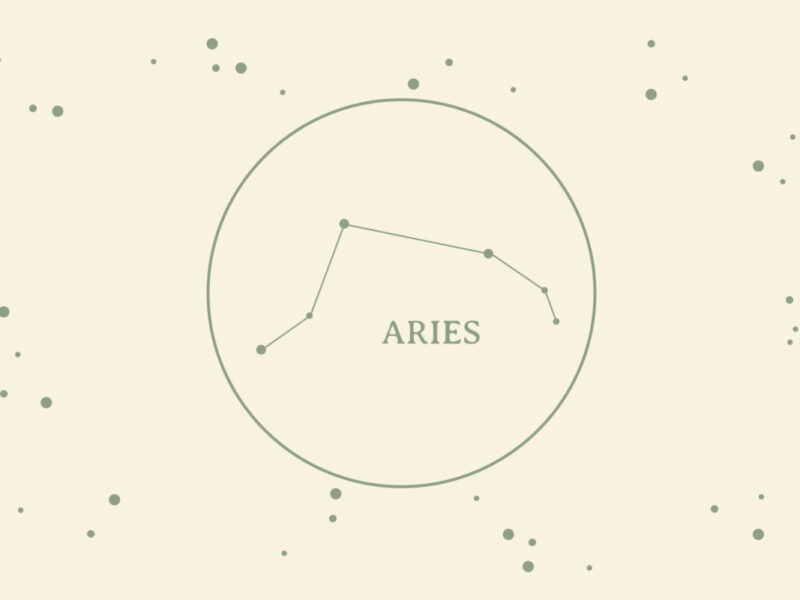If you’ve been on the Internet in the past few years, chances are you know all about imposter syndrome. Outlets like Harvard Business Review, Psychology Today, and even the American Psychological Association have written about the condition—further indicating its prevalence (an estimated 70 percent of the population struggle) and its legitimate impact.
To sum it up, people dealing with imposter syndrome have typically attained success, yet feel unworthy, anxious about making mistakes, and fearful of being “found out” as a failure. Oftentimes, these people attribute their accomplishments to everything besides their own hard work and talent. If this sounds like you, poetry can help—whether it’s through validating how common these feelings can be or by reminding you that you’re a total badass.
“God Says Yes To Me” by Kaylin Haught
Haught’s poem, presented as a series of conversations with a female god, embodies the type of comforting, unconditional love we all need when overcome by imposter syndrome. “I asked God if it was okay to be melodramatic / and she said yes / I asked her if it was okay to be short / and she said it sure is,” the poem begins.
This theme of embracing insecurities, from the common to the randomly specific, continues throughout the rest of the poem, as the speaker asks about her nail polish and her letter-writing habits. The refrain remains steady and uplifting: “Sweetcakes God said / who knows where she picked that up / what I’m telling you is / Yes Yes Yes.”
“No Apology: A Poemifesto” by Carmen Smith Giménez
There seems to be a correlation between imposter syndrome and feeling pressure to apologize frequently and unnecessarily, which, yes, more severely affects women. With this poem, Carmen Smith Giménez turns the impulse on its head, vowing to stop apologizing. The speaker recounts: “Today I counted and I said I’m sorry approximately 22 times. / I apologized for setting my stuff down at the counter at Krogers. / I apologized for being behind someone at a copy machine. I apologized for someone else bumping into a stranger. / I apologized for taking longer than a minute to explain an idea.”
If this list of daily apologies sounds hauntingly familiar, Giménez’s poem also provides a revolutionary suggestion. “Personally, / when the word comes into my mouth, I’m going to shape it into / a seed to plant in another woman’s aura as love,” the speaker declares. “I only ask / that we get started. This will be our first step in world domination.”
“One Day Is All You Can Do Sometimes” by Mercedes Lucero
One unexpected tip for coping with imposter syndrome? Allow yourself to feel and process all of the negative emotions it dredges to the surface. Some sources argue that once you acknowledge your anxiety, fear, or doubt, you might be more prepared to overcome it. Lucero said that one of her focuses in writing this poem was “the shape a body makes when it is filled with uncertainty.”
In its first line, the poem asserts, “It is better to converse with your own fear.” It also brilliantly voices the feeling of persistent anxiety: “It is hard to tell what a day looks like when the whole world is filled with that kind of water.” In the midst of such heavy emotions, perhaps the poem’s real inspiration lies in its title. You should congratulate yourself on both big and small victories, even if that victory only includes making it through the day.
“It Takes Two and a Half Millennials” by Charlotte Seley
In addition to being dubbed Generation Stress and The Burnout Generation, millennials have another troubling label: they’re also the generation most likely to grapple with imposter syndrome. It’s not difficult to see why: Millennials have been criticized for “killing” just about every industry you can imagine, dogged by unfounded perceptions that they are lazy and spoiled, and, lately, even reprimanded for not having children.
Seley’s poem takes the seemingly never-ending rant about millennials head-on, challenging the societal narrative and attempting to create a beautiful world in spite of it. She reflects, “Maybe / millennials ruined planets too, and money, and / mortgages, but for every two and a half there’s / one trying to salvage this shithole. There are / tiny houses and Marie Kondo and the purge / of pure waste… I am / purging my life of the unnecessary objects. / I am orbiting this change like an old rotary phone.”
“Triple Sonnet for my Aggressive Forehead” by Dorothy Chan
Though there are many ways to address imposter syndrome, what could be better than some classic, unabashed self-love? It can be especially empowering to direct some love towards traits that are regularly met with hurtful criticism—whether that criticism comes from others or yourself.
In this poem, Chan reacts to her father’s comment that her forehead is “too Godzilla, too Tarzan, too Wonder Woman” with long, creative praise for the feature, which she chooses to keep on full display. She writes, “Dad, I love you, but you should know / that I’m a nightmare as a woman / who can make the earth stand still, calling all UFOs from beyond / to paint me on canvas just as I am.” The self-love continues all throughout the poem, ending on this funny, irreplaceable note: “and yes, if I fill out a survey / from a sex magazine, I’m checking off / forehead as my favorite body part.”
I hope these poems transform you from “imposter” to powerful.




